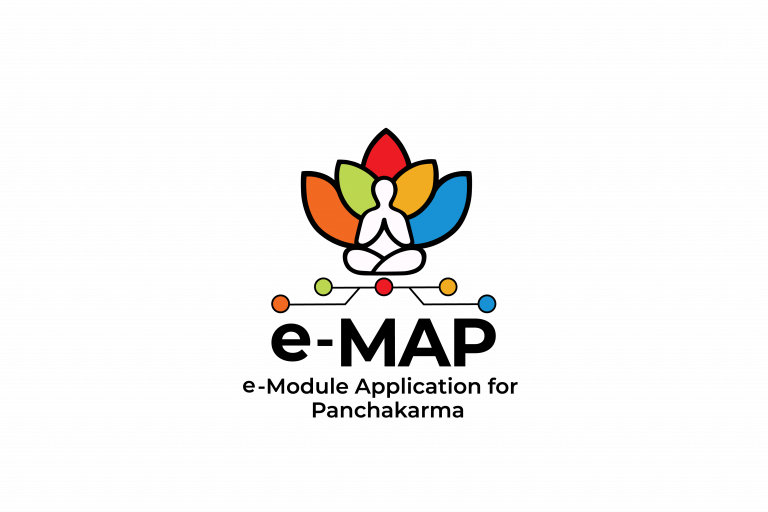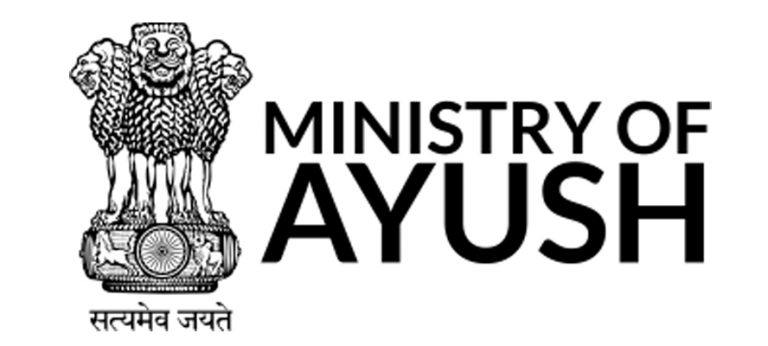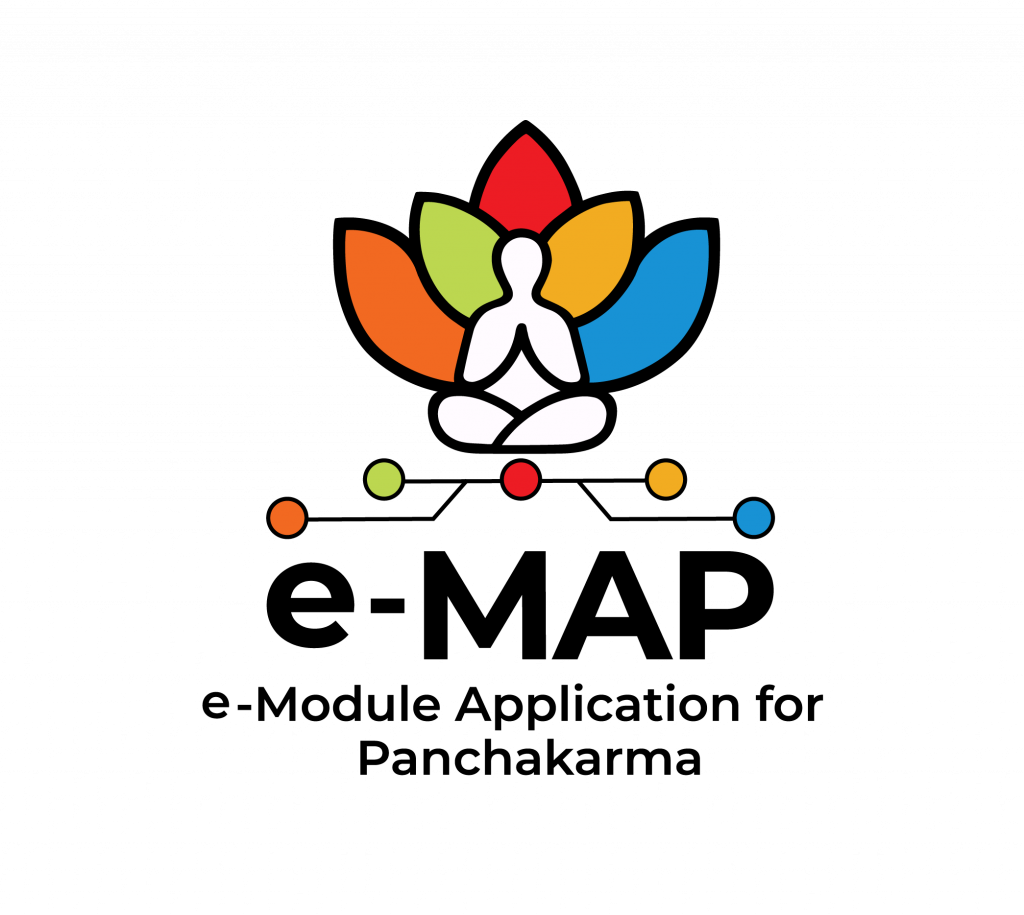
Basic Module 1 - Lesson 5
INTRODUCTION TO PAÑCAKARMA
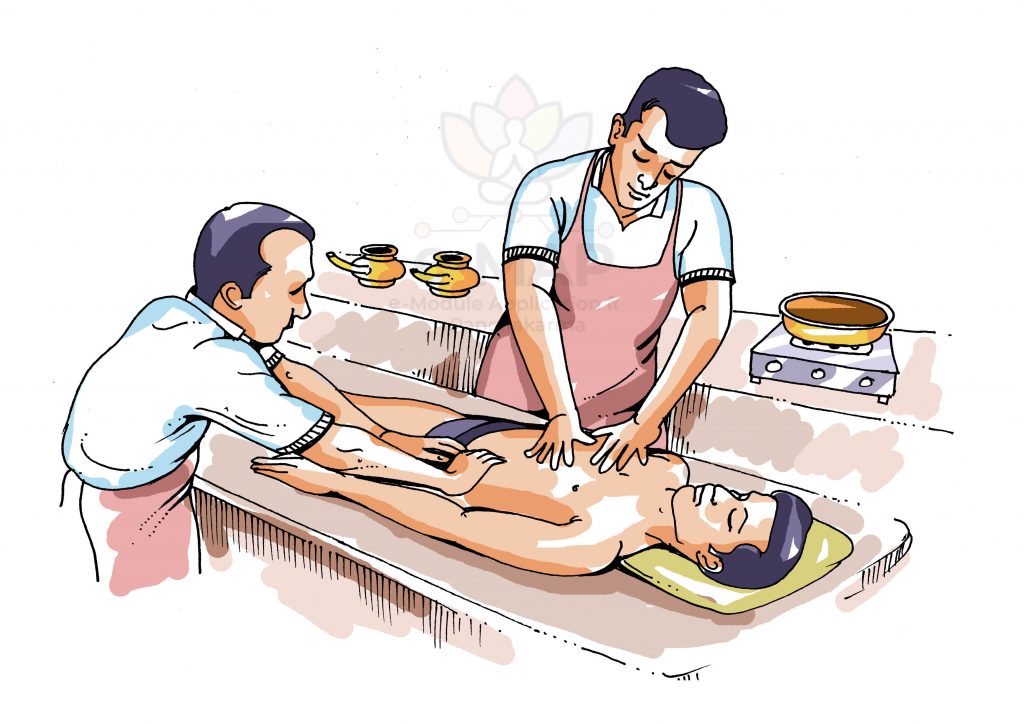
EXPLANATORY NOTES
After Śodhana till the patient attains the Samyak avasthā or Prakṛtavasthā he should abstain from ahitāhara and ahitā vihāra. Caraka has explained the symptoms of restoration of health after Śodhana and Saṃsarjana krāma as follows
सर्वक्षमो ह्यसंसर्गो रतियुक्तः स्थिरेन्द्रियः|
बलवान् सत्त्वसम्पन्नो विज्ञेयः प्रकृतिं गतः||९||
After the proper Saṃsarjana krāma the patient will be having the ability to take and digest various ingredients having all tastes, non-obstruction of natural urges, restoration of zest for life, sharp functioning of senses, return of strength and endowment of strong will power.
While explaining about the Parihārya viṣaya for pañcakarma in Caraka Siddhi 12th chapter, the Aṣṭa Mahā Doṣakar Bhāva has been told which should be avoided always.
एतां प्रकृतिमप्राप्तः सर्ववर्ज्यानि वर्जयेत्|
महादोषकराण्यष्टाविमानि तु विशेषतः
उच्चैर्भाष्यं रथक्षोभमविचङ्क्रमणासने|
अजीर्णाहितभोज्ये च दिवास्वप्नं समैथुनम्
तज्जा देहोर्ध्वसर्वाधोमध्यपीडामदोषजाः|
श्लेष्मजाः क्षयजाश्चैव व्याध्यः स्युर्यथाक्रमम्
Till the patient is restored with the above Lakṣaṇas, the patient should avoid all prohibited activities. He should avoid the following eight things.
Name of the Mahā doṣa which should be avoided | Meaning | Effect on body |
Ucchai Bhāṣya | Loud Speech | Ūrdhva deha pīḍā |
Ratha Kṣobha | Conveyance or travelling | Sarvadeha pīḍā |
Ati Chamkrāmana | Long wayfaring | Adhodeha pīḍā |
Ati Āsana | Constant Sitting | Madhyadeha pīḍā |
Ajīrṇa | Indigestion | Āmaja Roga |
Ahitā Bhojana | Unwholesome food | Doṣaja Roga |
Divā Svapna | Day Sleep | Kaphaja Roga |
Maithuna | Sexual Intercourse | Kṣayaja Roga |
In Caraka Kalpanā Siddhi Adhyāya he explains some other things also which should be avoided
अत्यासनस्थानवचांसि यानं स्वप्नं दिवा मैथुनवेगरोधान्||५४||
शीतोपचारातपशोकरोषांस्त्यजेदकालाहितभोजनं च|५५|
Here he tells to avoid Excessive sitting, standing, speaking and travelling, day sleep, sexual intercourse, suppression of manifested natural urges, cooling regimens, exposure to sun, grief and anger and intake of untimely and unwholesome food.
ASHTAMAHADOSHAKARA BHAVA – Lakṣaṇas and Cikitsā
In detail references regarding the Ashtamahadoshakar Bhava, it’s lakṣaṇas and cikitsā are mentioned in Charaka Siddhi 12th chapter xxxvii
- Uccaiḥ bhāṣya – The symptoms seen if the patient speaks loudly or speaks in excess are Shirotapa, saṅkā karṇa nistoda, srotroparodha, mukhatālukantasosha, timira, pipāsā, jwara, tamaka, hanugraha, manyastambha, nishteevana, urapārśvaśūlā, swarabheda, hikkā, swasa etc.
Treatment – abhyaṅga, Swedana, upanāha, Dhooma Nasya, bhojanaottara Snehapana, māṃsarasa Ksheeradi Sevana, All Vatanasaka karma, Mounadharana
- Rathakṣobha – The symptoms seen if the patient travels after śodhana includes sandhiparva shaithilya, hanu nasa karṇa śiraḥśūla – toda, kukṣi kṣobha, āṭopa, antrakūjana, adhmana, hridayendriyoparodha, sphik pārśva vamkshana vṛṣaṇa kati pṛṣṭha vedhana sandhi skandhas grīvā dourbalya, angabhitāpa, pāda śotha , praswapa, harṣa etc.
Treatment – Vatāhāra Snehana Swedana adi sarvakarma and nidāna parivarjana
- Atichamkramana – The symptoms seen if the patient walks for a longer distance after śodhana includes pāda jaṅghā ūrū jānu vamkshana śroṇi pṛṣṭha śūlā, sakti sada nistoda, pindikodveshtana, aṅgamarda, abhitāpa, siradhamani harṣa, swasa, kasa etc.
Treatment – Vatāhāra Snehana Swedana adi sarvakarma and nidāna parivarjana
- Ati Asana – By excessively sitting at time and after śodhana the symptoms like sphik parswa vamkshana kati pṛṣṭha vedana and all symptoms of rathakṣobha are seen.
Treatment – Vatāhāra Snehana Swedana adi sarvakarma and nidāna parivarjana
- Ajīrṇa bhojana – Symptoms like Mukha Shosha, adhmana, shola, nistoda, pipāsā, gatra sada, charddi, atisāra, mūrchā, jwara, pravahaṇa and amavisha
Treatment – Niravasheshathah Chardana and rūkṣa Swedana and Langhaneeya pachaneeya deepaneeya auṣadha Prayog.
- Ahita or viṣama bhojanaa – Symptoms like Aruchi, Dourbalya, vaivarṇya, Kandu, Pama, Gatravasāda, Vatadi dosha Prakopa.
Treatment – Doshanusar doshashamaka upaya
- Diva Swapna – Symptoms like arocaka, avipāka, Agninasha, Staimitya, pandutva, Tvakvikara, Kandu, Pama, dāha, Chardi, aṅgamarda , Hritsthamba, jaḍatā, Tandra, nidrā, Granthi, Dourbalyata, mūtra and Netra lalāṭa, Kapha lepa in tālu and pipāsā
Treatment – dhūmapāna, laṅgana, Vamana, śirovirecana, vyāyāma , rūkṣa āhāra sevana, ariṣṭapana, deepaneeya auṣadha Prayoga, pragharṣaṇa, unmardana, parishechana and other kaphanashaka upaya.
- Maithuna – Balanasha, ūrūsada, Shira- vasti – Guda – Medra – Vamkshana – ūrū – jānu – jaṅghā – pāda śūlā, Hridayaspandana, Netra peeda, Angasaithilya, Raktagamana through Sukramarga, Kasa, Swasa, Raktashteevana, Swarasada, kati dourbalya, Ekanga – Sarvanga Roga, Mushka Shotha, Vata -Varccha – mūtra avarodha, Sukravisarga, jaḍatā, Kampana, Badhirya, Vishada Roga, A feeling as if anus is cut, pain in the phallus as if it being cut, a feeling as if mind is shrinking, trembling of heart, pain in the joints and a feeling as if entering into darkness.
Treatment – Jeevaneeya Oushadha Siddha Ksheera – Sarpi Prayoga, Vatāhāra Swedana, abhyaṅga, upanāha, Vrishya āhāra sevana, Snehapana and Yapana vasti and Anuvasāna vasti, if there is urinary morbidities and pain in the region of urinary bladder then Uttara Vasti with Taila prepared by adding milk boiled with vidarigandhadi and Jeevaneeya ganoushadi.
According to Ashtanga Sangraha
उच्चैर्भाष्याच्छिरोरोगतिमिरोरः स्वरव्यथाः|
रक्तनिष्ठीवतमकज्वराद्यास्तत्र साधनम्|
अभ्यङ्गस्वेदनस्याऽधो भक्तस्नेहोपसेवनम्|
मौनं विधिर्वातहरो यथास्वं च विकारजित्||२६||
अत्यास्यायानयानाभ्यां सन्धिमूर्धत्रिकादिरुक्|
अतिचिङ्क्रमणात् पादजङ्घोरुसदनादयः|
तेषां वातहरं सर्वं स्नेहस्वेदादि शस्यते|
अजीर्णभोजनादामविषच्छर्दिज्वरादयः|
तत्र मात्राशितीयोक्तो विधेयो विधिरामहा|
अहितान्नाद्यथादोषं रोगाः स्युर्भेषजानि च||२७||
हलीमकादयः प्रोक्ता दिवास्वप्नात्पुरा गदाः|
विदध्यात् कफजित्तेषु धूमरूक्षान्नलङ्घनम्||२८||
व्यवायाज्जीवितभ्रंशस्तैस्तैरस्यानिलामयैः|
गुदोऽवलुप्यत इव भ्रमतीव च चेतना|
मेढ्रं धूमायति मनस्तमसीव प्रवेश्यते|
जीवनीयशृतक्षीरसर्पिषोरुपसेवनम्|
आहारो बृंहणसत्र वृष्यास्ते ते च बस्तयः||२९||
According to Vriddha Vaghbata also Ashta Maha dosha bhava is told along with its effect in the body and its treatment in the chapter Snehavyāpad Siddhi.
Susruta has enumerated the following things to be avoided during Panchakarma
- Krodha
- āyasa and śoka
- Maithuna
- Diwaswapna
- Uchhabashana
- Yanasevana
- Chirasana
- Ati Chamkramana
- Sheeta Sevana
- Vata – Atapa Sevana
- Viruddha āhāra and Adhyashana
- asātmya bhojana
- Apramana bhojana
In different Panchakarma different restrictions are told in above to the 8 mentioned points. This is based on the āhāra and vihāra to be followed in context of the Poorva – Pradhana – Paschat Karma of various Karmas. Also, the parihāra Kala is told which equals to the days of the Panchakarma therapy except Vasti and double the time required for the course of vasti therapy (Dviparihāra Kala)
IMPORTANT SLOKA
सर्वक्षमो ह्यसंसर्गो रतियुक्तः स्थिरेन्द्रियः|
बलवान् सत्त्वसम्पन्नो विज्ञेयः प्रकृतिं गतः||९||. (Ch. Si 12/9)
After the proper samsarjana krama the patient will be having the ability to take and digest various ingredients having all tastes, non-obstruction of natural urges, restoration of zest for life, sharp functioning of senses, return of strength and endowment of strong will power.
एतां प्रकृतिमप्राप्तः सर्ववर्ज्यानि वर्जयेत्|
महादोषकराण्यष्टाविमानि तु विशेषतः
उच्चैर्भाष्यं रथक्षोभमविचङ्क्रमणासने|
अजीर्णाहितभोज्ये च दिवास्वप्नं समैथुनम्
तज्जा देहोर्ध्वसर्वाधोमध्यपीडामदोषजाः
श्लेष्मजाः क्षयजाश्चैव व्याधयः स्युर्यथाक्रमम् || (Ch.Si.12/10-12)
Till the patient is restored with the above lakṣaṇas, the patient should avoid all prohibited activities. He should avoid the following eight things.
Loud speech causes pain over upper part of the body, riding vehicles causes pain all over the body, long wayfaring causes pain in the lower part of the body, constant sitting causes pain in the middle part of the body, indigestion gives rise to diseases caused by āma, intake of ahita bhojana gives rise to diseases caused by different doṣas, sleep during day time gives rise to diseases caused by kapha and maithuna gives rise to diseases caused by kṣaya.

